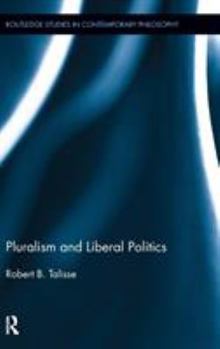Pluralism and Liberal Politics
(Part of the Routledge Studies in Contemporary Philosophy Series)
Select Format
Select Condition 
Book Overview
In this book, Robert Talisse critically examines the moral and political implications of pluralism, the view that our best moral thinking is indeterminate and that moral conflict is an inescapable feature of the human condition. Through a careful engagement with the work of William James, Isaiah Berlin, John Rawls, and their contemporary followers, Talisse distinguishes two broad types of moral pluralism: metaphysical and epistemic. After...
Format:Hardcover
Language:English
ISBN:0415884217
ISBN13:9780415884211
Release Date:August 2011
Publisher:Routledge
Length:196 Pages
Weight:0.90 lbs.
Dimensions:0.6" x 5.9" x 9.1"
Related Subjects
PhilosophyCustomer Reviews
0 rating





